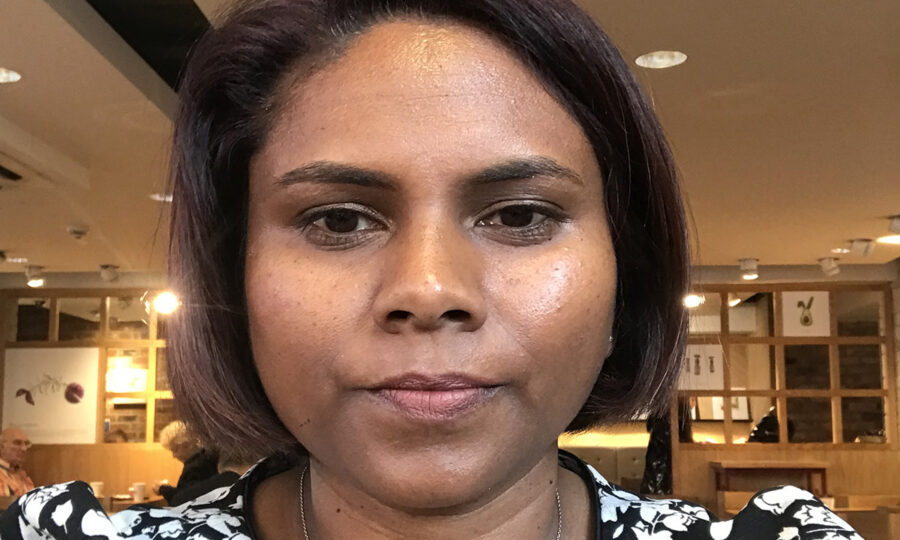In conversation with…. Shantell

This Diabetes Week, we spoke to with Shantell Naidu, a local diabetes special nurse consultant, to find out more about the condition – the symptoms to look out for and how it can be treated
Tell us about your background.
I’ve been a diabetes nurse for 20 years. When I was a student nurse on the ward, my grandmother was admitted to hospital with complications due to diabetes. She sadly passed away, but she became my motivation to work in this field. I wanted to see if there was a way to turn things around for people living with diabetes.
I trained in South Africa and when I came to the UK, I realised that there was an opportunity to specialise in diabetes, so I tailored my training.
What is diabetes?
Diabetes is a long-term condition which requires ongoing management. There are two main types: type one, where the body’s immune system attacks and destroys the cells that produce insulin, and type two diabetes, where the body does not produce enough insulin, or the body’s cells do not react to insulin.
Type one diabetes mainly affects younger people, but it is possible to develop it at any time. About 80–90 percent of people with diabetes have type two. In the community where I work, we mainly look after people with type two diabetes. We have a young, diverse population with one of the largest Bengali communities in the UK, and one of the largest populations with serious mental illness.
Who is most at risk?
As we get older, over the age to 40, our risk of type two diabetes increases. However, the risk is higher at a younger age among certain ethnic groups, including Asian, South Asian, and Afro-Caribbean. Other risk factors include being overweight or carrying your weight centrally around your abdomen, having a strong family history of diabetes, and developing gestational diabetes, which is diabetes during pregnancy that sometimes goes away but may come back later. If you have any of these risk factors, you need a regular screening for diabetes.
What happens if you develop type two diabetes?
Type two diabetes causes blood sugar in the body to become dangerously high. The body doesn’t make enough insulin, and with that, the sugar in the blood stays high. Type two diabetics also develop something called insulin resistance, which means that the cells in the muscles, fat and liver don’t respond well to insulin and can’t easily take up the sugar from the blood. Insulin resistance can be caused by an excess of fat centrally around the abdomen. Diet and exercise are key in managing diabetes and sometimes people need medication as well.
What are some of the most common signs and symptoms?
It can be hard to tell sometimes, especially when a person’s blood sugars are very high and have been for a long time, as their bodies may have gotten used to it and so symptoms do not show. If you have any risk factors or are over 40 years old, you should have regular screenings, whether you have symptoms or not. It’s important to identify diabetes early.
Some common symptoms to look out for are feeling very thirsty; passing a lot of urine; feeling very tired; blurred vision; getting infections such as abscess, or skin infections like cellulitis; a urine infection, or thrush, which is an infection of the genital areas.
How is type two diabetes diagnosed?
Type two diabetes is often diagnosed following blood or urine tests for something else. However, you should see a GP straight away if you have any symptoms of diabetes. The GP will arrange a blood test to check your blood sugar levels. The test results usually come back within a week and your GP surgery will be able to discuss the results with you.
Can type two diabetes be reversed?
Type two diabetes is a preventable disease. If you are identified as having pre-diabetes, we have a great programme in north-central London called the Diabetes Prevention Programme, which your doctor can refer you to. Taking the right steps can help you stop the progression of pre-diabetes into diabetes.
If you are diagnosed with diabetes, we know from clinical evidence that early identification and management can reduce the risk of complications. Long-term high blood sugar can damage the blood vessels in the eyes, damage circulation and the nerves of the feet, and damage the kidneys, which could lead on to kidney failure or dialysis. With good support, education, and management, you can prevent some of these complications.
Find out your risk of developing type two diabetes. If you have already been diagnosed with diabetes, you can access support through the diabetes UK care line.
